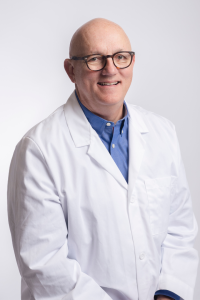SmileDirectClub closure sheds light on issues in direct-to-consumer dental industry
by December 21, 2023 9:05 pm 882 views

SmileDirectClub, a prominent player in direct-to-consumer teeth straightening, on Dec. 8 announced the immediate shut-down of its global operations. This abrupt closure significantly impacts its customers and has raised pertinent questions about the future of the mail-order clear aligners business. Dr. Mark Dake, chief clinical officer of Rock Dental Brands in Little Rock, offers insights on the implications of this event.
Q: SmileDirectClub was an industry leader in direct-to-consumer dentistry, with a valuation of close to $9 billion in 2019. What insight can you offer into what happened?
Dr. Mark Dake: I believe that SmileDirectClub serves as a cautionary tale for the dental industry and unfortunately for its customers, who placed trust in what seemed like a wise investment to improve their smiles. To give you some background, SmileDirectClub was established in 2014 and pledged to revolutionize orthodontics by providing consumers direct access to custom-fit, clear plastic aligners. Their business model boasted convenience and accessibility and was widely viewed as innovative.
For those with insight into the complexity of orthodontic procedures, there were red flags right away with this approach. It hinged on customers self-administering dental impressions at home and, most importantly, removed the crucial element of clinically-supervised treatments with a certified orthodontic specialist.
Over time, initial concerns about the risks associated with DIY dental care have been realized in our orthodontic clinics. Our doctors often encounter individuals seeking corrections after inadequate treatment from at-home kits, with some cases presenting irreversible issues. We watched SmileDirectClub face lawsuits and scrutiny for misleading advertising, claims of FDA violations and use of non-disclosure agreements to stifle unhappy customers. All of this culminated in SmileDirectClub filing for Chapter 11 bankruptcy in late September, ahead of its recent closure.
Q: Multiple national news outlets have reported an uproar from SmileDirectClub’s customers, who are sharing their experiences online. Where does this closure leave them?

Dr. Dake: I’ve been watching the news unfold with everyone else, and it looks like many customers are left with incomplete treatment. It’s been reported that individuals with payment plans are expected to keep paying and that, for those two million customers, SmileDirectClub’s “Lifetime Smile Guarantee” is null and void.
There’s ambiguity right now in terms of exactly how many people are affected — but one thing is really clear. The collapse of SmileDirectClub serves as a strong reminder of the importance of patient care, oversight and accountability in the delivery of dental services. The best move for those who were affected by this is for them to seek professional care from a local dental provider who specializes in orthodontics.
Q: How do you respond to individuals skeptical of the traditional dental industry’s critique of direct-to-consumer dental care, dismissing it as mere protection of their own interests?
Dr. Dake: I get it. This is business, and in that sense, DIY dental kits are competition for certified orthodontic specialists. However, at the end of the day, this is about upholding an adequate standard of care and adhering to ethical principles in how patients are treated. Rock Dental Brands and all of our clinics and providers hold those standards and principles very dear.
With orthodontic treatment, you’re shifting the teeth and also addressing jaw alignment. It can reshape a person’s whole facial structure. Errors in impressions can lead to aligners causing discomfort, and they can also lead to long-term effects like overbite, underbite or root fractures. There are bones, ligaments and nerves involved. All of this highlights the importance of professional medical supervision.
Q: With this in mind, to what do you attribute the popularity of at-home teeth straightening, and how has traditional dentistry responded?
Dr. Dake: One big draw for DIY teeth straightening is the convenience factor. Everyone is busy, and if there’s an opportunity to take care of something at home instead of coming into an office for an appointment, that’s attractive. To that end, many orthodontists now offer remote monitoring, which means you still receive professional treatment and supervision, but in the comfort of your own home.
There are probably some direct-to-consumer kit customers who equate in-clinic orthodontics with old-school braces, so they turned to the kits in an ad they saw for clear aligners, but many orthodontists offer this treatment as well.
Finally, I think there is a misconception that orthodontic treatment isn’t attainable financially. While that might have been true in decades past, that’s just not the case today for most families. My hope is that the SmileDirectClub closure will serve as a wake-up call for direct-to-consumer brands and help consumers make the best possible decisions for their oral health.
Editor’s note: Dr. Mark Dake is the chief clinical officer and co-founder of Little Rock-based Rock Dental Brands, a group of doctors who provide multidisciplinary care in pediatric dentistry, orthodontics, general dentistry and oral surgery. The practice management group has more than 100 affiliate clinics in five states. The opinions expressed are those of the author.
